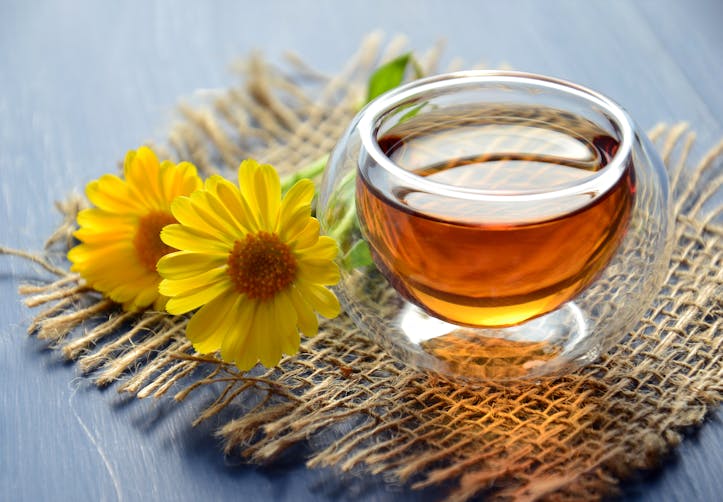Fasting Tea: Is Herbal Tea Acceptable During Intermittent Fasting?

When embarking on an intermittent fasting journey, many individuals question whether incorporating herbal tea is suitable during their fasting periods. This blog post aims to provide clarity on this topic and offer valuable insight into how herbal tea can fit into an intermittent fasting regimen.
Understanding Intermittent Fasting and Beverage Choices
Intermittent fasting involves cycling between periods of eating and abstaining from food. During fasting windows, it’s essential to maintain hydration and minimize calorie intake to preserve the fast’s integrity. Beverages like water, black coffee, and tea are commonly consumed, but what about herbal tea?
The Role of Herbal Tea in Fasting
Herbal tea, known for its myriad of flavors and potential health benefits, is often considered a comforting zero-calorie option. Since most herbal teas do not contain caffeine or significant calories, they can typically be enjoyed without breaking a fast. However, it’s crucial to select teas without added sugars or artificial flavorings that could disrupt the fasting state.
Benefits of Drinking Herbal Tea While Fasting
Drinking herbal tea during fasting can offer several advantages:
- Hydration: Herbal teas contribute to hydration, which is vital during fasting.
- Appetite Control: Certain herbs can help suppress appetite, making fasting periods more manageable.
- Stress Relief: The act of sipping tea can be calming and provide a sense of ritual during fasting.
- Antioxidant Intake: Many herbal teas are rich in antioxidants, which support overall health.
Choosing the Right Herbal Teas for Fasting
When selecting an herbal tea, opt for pure blends without additives. Some popular fasting-friendly options include:
- Peppermint tea, for its digestive soothing properties
- Chamomile tea, known for its relaxation benefits
- Ginger tea, which can aid in digestion and nausea relief
- Hibiscus tea, which may help in blood pressure management
It’s also worth noting that some herbal teas can have a diuretic effect, so it’s essential to balance tea consumption with adequate water intake.
Potential Considerations and Misconceptions
Despite the general acceptance of herbal tea during fasting, some misconceptions persist. For instance, the belief that any tea will break a fast is inaccurate, as long as the tea is free of caloric content. Furthermore, it’s important to recognize that individual responses to herbal ingredients may vary, so monitoring one’s body reaction is advisable.
Integrating Herbal Tea into Your Intermittent Fasting Plan
To effectively incorporate herbal tea into your fasting routine, consider the following tips:
- Plan your tea consumption to align with your fasting schedule
- Vary your tea choices to enjoy a range of flavors and health benefits
- Prepare teas without sweeteners or milk to avoid breaking your fast
- Listen to your body and adjust tea intake as needed
Key Takeaways for Fasting Enthusiasts
Herbal tea can be a valuable addition to an intermittent fasting lifestyle, offering hydration, appetite suppression, and other health benefits without compromising the fast. By choosing the right teas and consuming them mindfully, individuals can enhance their fasting experience and support their wellness goals.
In conclusion, while herbal tea is generally acceptable during intermittent fasting, it’s essential to make informed choices about what you consume during your fasting window. By doing so, you can maintain your fast effectively and enjoy the potential benefits that herbal tea has to offer.
Discover if herbal tea is a suitable choice during intermittent fasting and learn how it can complement your fast without breaking it.
Recent Posts
- Fasting Tea Benefits: A Look at Alternatives to White Yogi Healthy Tea
- Fasting Tea Benefits After White Yogi Discontinuation
- Fasting Tea Benefits: What Happened to White Yogi Healthy Fasting Tea?
- Fasting Tea Benefits – What Happens When Discontinued?
- Unlocking Alternatives to White Yogi Healthy Fasting Tea
- Fasting Tea Benefits and Alternatives When White Yogi Healthy Brand Discontinued
- Fasting Tea Trends: The Discontinuation of White Yogi Healthy Tea
- Fasting Tea Discontinued: What’s Next for White Yogi?
- Fasting Tea Benefits and Alternatives to White Yogi Healthy Fasting Tea
- Fasting Tea Benefits: The White Yogi Healthy Brand Discontinuation